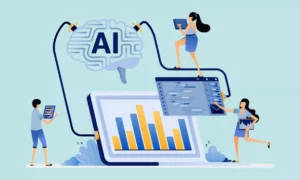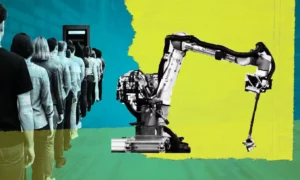Is your AI investment actually paying off? According to a new global report, many companies can now say yes — and the key lies in agentic AI.
From finance to customer service, enterprises are discovering that AI agents aren’t just helpful. They’re profitable.
Capgemini’s latest findings show this isn’t about futuristic hype. It’s a clear pivot to measurable business impact.
Inside the Numbers: How AI Is Powering Enterprise Efficiency
A new report from the Capgemini Research Institute confirms what many leaders suspected — generative and agentic AI are starting to deliver real, bottom-line results.
The study found that AI-led workflows are already cutting costs by 26% to 31% across operations like procurement, accounting, supply chains, and even HR.
Capgemini analyzed patterns in enterprise AI adoption, noting that high-impact use cases such as intelligent contract analysis remain underutilized, while simpler applications have gained more traction.
One striking trend: agentic AI — where autonomous systems handle decision-making within workflows — is now deployed by 21% of surveyed organizations. That figure has more than doubled in just a year.
Production-grade rollouts are expected to climb another 48% this year, signaling strong momentum.
“Generative AI and agentic AI won’t fix broken supply chains — but applied to the right processes, they’ll transform them,” said Dr. Mark Roberts, CTIO of Applied Sciences at Capgemini Engineering.
Roberts emphasized that true enterprise value comes from targeted use, not blind experimentation.
Across the board, companies are increasing AI investment. Nearly two-thirds (62%) have grown their generative AI budgets in 2025, with 36% dedicating fresh capital and 33% reallocating existing funds.
Even among firms where leadership remains cautious, 60% reported increased AI spending. Industries showing the fastest rise in investment include consumer products (73%), insurance (70%), and banking (67%).
The Bigger Picture: Why Agentic AI Is Moving Fast
What’s pushing this acceleration? Enterprises aren’t just automating — they’re redesigning how work gets done.
Agentic AI lets software agents make dynamic decisions, not just follow scripts. For example, a finance agent might re-prioritize payments based on real-time risk, or flag contract leaks before they impact revenue.
Unlike traditional bots, these systems adapt, learn, and coordinate across tools. That’s why compliance-heavy functions like HR, procurement, and finance are leading the charge — they need reliability at scale.
Customer-facing roles are catching up fast. Businesses are blending service and sales touchpoints, using AI to surface smarter upsells and resolve issues with context-aware agents.
And results speak: one pharma company reported a 300% ROI using AI to stop value leakage in contract reviews.
These aren’t isolated wins. They reflect a structural change in how enterprise software gets value from data.
Expert Insight
“AI significantly enhances cost savings and cost avoidance, which are crucial for supply chain efficiency,” said the Senior Director of Global Procurement Analytics at a major pharmaceutical firm.
“The ROI for AI-driven contract analysis and value leakage prevention surpasses 300 percent.”
“AI agents are expected to drive efficiencies and reduce operational costs, with conservative estimates indicating a minimum of 10 percent efficiency gains and optimistic projections reaching 25 percent,” said Joji Philip, Director of AI/ML Products at Ericsson.
“Agentic AI represents a new frontier in intelligent automation,” added Deepak Anand, Enterprise Architecture Lead at UiPath, “where AI agents not only orchestrate and integrate diverse tools but also drive dynamic workflows.”
GazeOn’s Take: Where It Could Go from Here
Agentic AI isn’t a future bet anymore — it’s a present-day differentiator. As tools mature and data flows improve, we’ll likely see these systems move from pilot to permanent.
The smartest enterprises are already doing the math, and it’s adding up. Expect agent-first strategies to quietly reshape business software for the next decade.
Reader Question
Is your company still experimenting with AI — or already seeing returns? Share your real-world use case with us.
About Author:
Eli Grid is a technology journalist covering the intersection of artificial intelligence, policy, and innovation. With a background in computational linguistics and over a decade of experience reporting on AI research and global tech strategy, Eli is known for his investigative features and clear, data-informed analysis. His reporting bridges the gap between technical breakthroughs and their real-world implications bringing readers timely, insightful stories from the front lines of the AI revolution. Eli’s work has been featured in leading tech outlets and cited by academic and policy institutions worldwide.



























